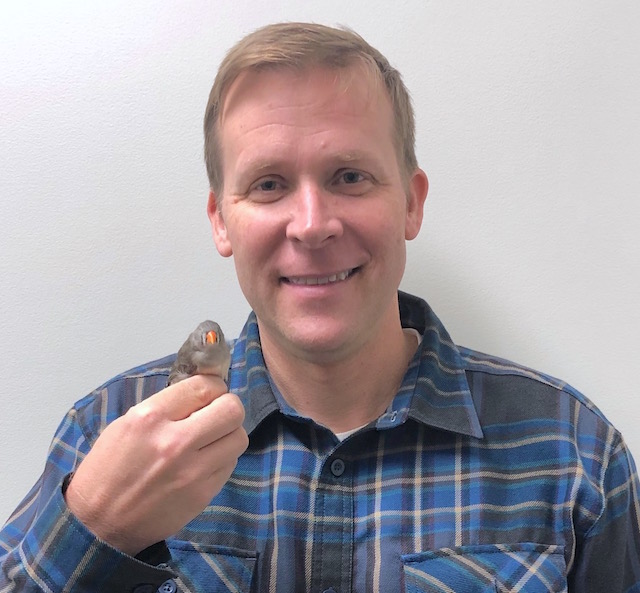| ||||||||||
Dr. Ronald P. Rogers CHIROPRACTOR Support for your body's natural healing capabilities 270-384-5554 Click here for details 


Columbia Gas Dept. GAS LEAK or GAS SMELL Contact Numbers 24 hrs/ 365 days 270-384-2006 or 9-1-1 Call before you dig Visit ColumbiaMagazine's Directory of Churches Addresses, times, phone numbers and more for churches in Adair County Find Great Stuff in ColumbiaMagazine's Classified Ads Antiques, Help Wanted, Autos, Real Estate, Legal Notices, More... 

|
WKU Research: Detrimental Effects of Light Pollution By Tommy Newton Bowling Green, KY - Most animal species utilize a biological clock to synchronize with the Earth's daily cycle of light and dark to govern activities important for reproduction, growth and sleep. However, with increased urbanization and industrialization across the globe, there is growing scientific evidence that artificial light at night can have harmful effects upon humans as well as wildlife. Such effects include weight gain and sleep disruption in humans, and reduced cognitive performance, sleep and survival in birds. In a new study published in the journal Scientific Reports, Dr. Noah Ashley, associate professor of Biology at Western Kentucky University, Dr. Ila Mishra of Case Western Reserve University and colleagues have identified another negative effect of light pollution -- disruption of the rhythms that regulate the immune system. They showed that exposure to 10 days of extremely dim light at night (similar to light produced from a single "night light") in captive zebra finches can significantly alter or abolish the daily rhythms of cytokines -- chemical mediators that regulate immunity as well as sleep, in many animals, including humans. "These results have important implications for monitoring populations of wildlife that are exposed to increased artificial lighting at night. From a conservation perspective, disruption of the immune system could affect how these populations respond to emerging pathogens and disease," Dr. Ashley said. As for human health, many studies have shown that sleep quantity and quality improve the darker the sleep environment is. "One of the keys to getting a good night's sleep is to minimize artificial light by turning off computer screens, TVs and mobile phones," Dr. Ashley said. This study was funded by the National Science Foundation and the National Institutes of Health. Two Gatton Academy students, Reinhard Knerr and Alexander Stewart, were also co-authors of this study. Read the publication in 'Scientific Reports' here: www.nature.com/articles/s41598-019-51791-9. This story was posted on 2019-11-01 10:48:32
Printable: this page is now automatically formatted for printing.
Have comments or corrections for this story? Use our contact form and let us know.
More articles from topic News:
Check home carbon monoxide detectors this weekend Hemp Summit Set for Dec. 4 in Louisville T.J. Community Mission Foundation annual foundation fundraiser Sunny and colder, high only 48F 7-County Area Courts for Fri 1 Nov 2019 ACHS provides warm, safe place for Treats on the Town Fall Back Driving Tips for end of Daylight Saving Time LWC Safe Halloween Trick or Treat at Holloway tonight Comer: Community Office Hour on Tue 12 Nov 2019 Adair Co. Library campus will grow in 2020 View even more articles in topic News |


|
||||||||
|
| ||||||||||
|
Quick Links to Popular Features
Looking for a story or picture? Try our Photo Archive or our Stories Archive for all the information that's appeared on ColumbiaMagazine.com. | ||||||||||
|
Contact us: Columbia Magazine and columbiamagazine.com are published by Linda Waggener and Pen Waggener, PO Box 906, Columbia, KY 42728. Please use our contact page, or send questions about technical issues with this site to webmaster@columbiamagazine.com. All logos and trademarks used on this site are property of their respective owners. All comments remain the property and responsibility of their posters, all articles and photos remain the property of their creators, and all the rest is copyright 1995-Present by Columbia Magazine. Privacy policy: use of this site requires no sharing of information. Voluntarily shared information may be published and made available to the public on this site and/or stored electronically. Anonymous submissions will be subject to additional verification. Cookies are not required to use our site. However, if you have cookies enabled in your web browser, some of our advertisers may use cookies for interest-based advertising across multiple domains. For more information about third-party advertising, visit the NAI web privacy site.
| ||||||||||





















































